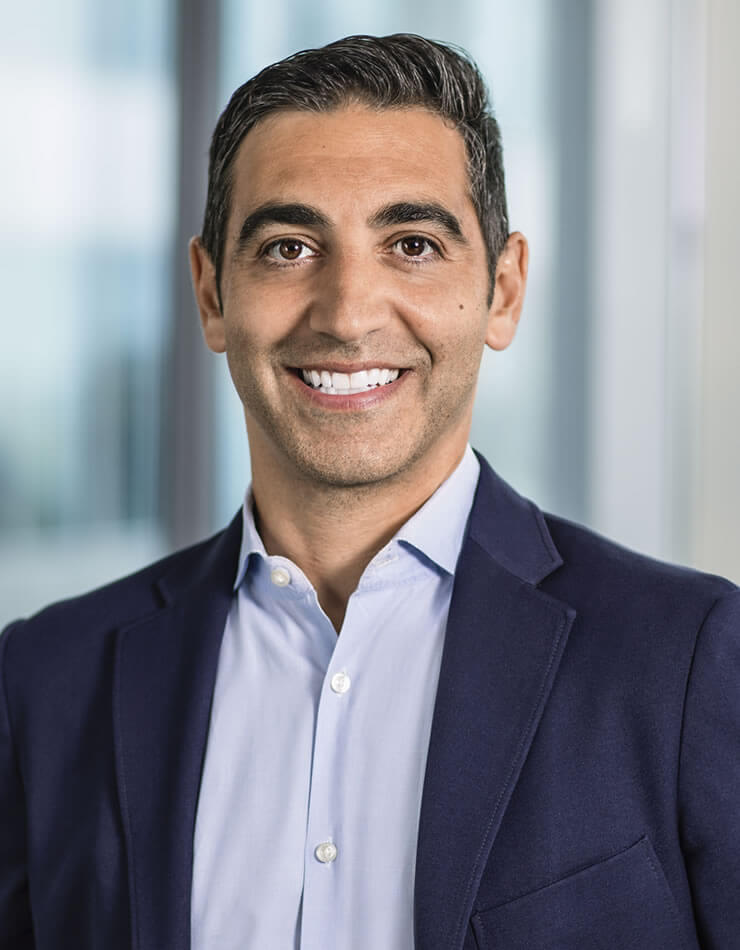Oakmark Fund - Investor Class
Average Annual Total Returns 09/30/20
Since Inception 08/05/91 11.77%
10-year 10.97%
5-year 8.61%
1-year 1.18%
3-month 6.18%
Gross Expense Ratio as of 09/30/19 was 0.92%
Net Expense Ratio as of 09/30/19 was 0.88%
The net expense ratio reflects a contractual advisory fee waiver agreement through January 27, 2021.
Past performance is no guarantee of future results. The performance data quoted represents past performance. Current performance may be lower or higher than the performance data quoted. The investment return and principal value vary so that an investor’s shares when redeemed may be worth more or less than the original cost. To obtain the most recent month-end performance data, view it here.
The Oakmark Fund increased 6.2% during the third quarter, compared to an 8.9% gain for the S&P 500 Index. For the fiscal year ending September 30, the Oakmark Fund increased 1.2%, trailing the 15.2% gain for the S&P 500. It’s only fitting that unusual times produce unexpected outcomes, as illustrated by the fact that just four stocks in the S&P 500 drove approximately 70% of its total return over the past 12 months. Furthermore, the relative underperformance of the Russell 1000 Value Index against the S&P 500 is near an all-time high, with the former down 5% over the past fiscal year. Fortunately, we believe the magnitude of this atypically high performance dispersion presents an attractive investment environment for patient, value-oriented investors like Oakmark. Our disciplined investment process and long-term focus enable us to capitalize on dislocations between stock price and business value without having to speculate about short-term catalysts or to manage to a specific benchmark. This perspective has allowed us to outperform the market over the near 30-year life of the Oakmark Fund.
Our highest contributing securities for the fiscal year were Regeneron Pharmaceuticals and Netflix and our largest individual detractors were Citigroup and Wells Fargo. For the quarter, our best performing securities were Ally Financial and Pinterest and our largest detractors were Citigroup and EOG Resources. Our strongest contributing sectors over the past fiscal year were communication services and health care and our biggest detractors were financials and energy. In our assessment, $40 per barrel is an unsustainably low price for oil and it fails to incentivize necessary U.S. and other non-OPEC production growth. We believe that our holdings in this sector can benefit from increased cost discipline and the potential for rising prices. Although energy makes up a small percentage of the Fund’s total assets, we believe our holdings in this sector offer some of the highest upside potential and should benefit from a recovery in demand over the next several years.
During the quarter, we initiated new positions in CBRE Group and Keurig Dr Pepper and we eliminated positions in Match Group and Pinterest. We took advantage of the market’s heightened volatility during the first calendar quarter of this year to establish positions in both Match Group and Pinterest, which had traded down significantly, despite attractive long-term fundamental outlooks, increased user engagement and strong balance sheets. While we rarely anticipate that our thesis will play out as expeditiously as it did for both companies, the market ended up agreeing with our thesis for each in short order, and both stocks approached our estimate of intrinsic value. We expect Match Group and Pinterest will continue to grow at above-average rates for the foreseeable future and we believe they are both well managed and well positioned in their respective industries. However, we elected to sell them to pursue more attractive alternatives that were trading at steeper discounts to our estimates of intrinsic value.
If you carefully examine our portfolio holdings, you will see a number of options positions. As you know, while minimizing taxes is not a primary investment strategy at Oakmark, maximizing long-term after-tax returns is. Realizing tax losses on stocks we believe are still attractive is an important part of achieving that goal. The September market decline gave us the opportunity to take tax losses in several of our energy and financial stocks. To maintain some economic interest in those stocks, we sold out of the money put options. After the 30-day wash sale period expires, we want to repurchase those shares, which is what will happen if the stock price falls and we are assigned on the options. If the stock price increases, the premiums we received for writing the options will capture at least some of the gain that we will have missed out on. Despite having exited several of our long-term holdings that had appreciated substantially, we anticipate that our taxable capital gain distribution will be zero this year.
We appreciate your continued support and confidence in the Oakmark Fund. Below is a brief description of our new additions during the quarter:
CBRE Group, Inc. Class A
CBRE Group is the largest commercial real estate services firm in the U.S. The company has significant scale across its various service lines and geographies, enabling it to consistently invest more than its smaller peers into the research, tools and technology that customers value. This industry-leading value proposition has driven consistent share gains for CBRE in recent years as large clients have been attracted to the company’s differentiated capabilities and the best brokers have been attracted by the steady stream of clients. We expect CBRE to continue to gain market share in this highly fragmented brokerage industry for many years to come while it further transitions away from transaction-driven commissions and toward contractual fee revenues. Outsized fears around work from home have caused the company to sell for less than 9x our estimate of mid-cycle earnings. We think this is a bargain price for this high-quality and well-managed business.
Keurig Dr Pepper, Inc.
Keurig Dr Pepper is one of North America’s leading beverage companies and commands dominant positions in single-serve coffee and flavored sodas. We believe single-serve coffee pods will capture almost all of the incremental growth in at-home coffee consumption because coffee drinkers increasingly prefer K-Cups over drip brewing due to its greater convenience, quality, variety and value. Keurig’s competitive advantages (low-cost production, the largest installed base of brewers, exclusive brand partnerships) allow it to collect a toll on most pods sold in North America. The company’s soda franchises remain highly profitable, and we do not expect health-related concerns about sugar to materially impact consumption trends. We believe that Keurig’s brands should deliver steady growth, consistent market share gains and significant excess cash. We think the company is an above-average business trading at a meaningful discount to the broader market, its beverage peers and historical private market transactions.
The securities mentioned above comprise the following percentages of the Oakmark Fund’s total net assets as of 09/30/20: Ally Financial 3.5%, CBRE Group Cl A 0.8%, Citigroup 1.4%, EOG Resources 0.9%, Keurig Dr Pepper 1.5%, Match Group 0%, Netflix 3.6%, Pinterest 0%, Regeneron Pharmaceuticals 0.9% and Wells Fargo 1.4%. Portfolio holdings are subject to change without notice and are not intended as recommendations of individual stocks.
Access the full list of holdings for the Oakmark Fund as of the most recent quarter-end.
The S&P 500 Total Return Index is a float-adjusted, capitalization-weighted index of 500 U.S. large-capitalization stocks representing all major industries. It is a widely recognized index of broad, U.S. equity market performance. Returns reflect the reinvestment of dividends. This index is unmanaged and investors cannot invest directly in this index.
The Russell 1000® Value Index measures the performance of the large-cap value segment of the U.S. equity universe. It includes those Russell 1000® companies with lower price-to-book ratios and lower expected growth values. This index is unmanaged and investors cannot invest directly in this index.
The Oakmark Fund’s portfolio tends to be invested in a relatively small number of stocks. As a result, the appreciation or depreciation of any one security held by the Fund will have a greater impact on the Fund’s net asset value than it would if the Fund invested in a larger number of securities. Although that strategy has the potential to generate attractive returns over time, it also increases the Fund’s volatility.
Harris Associates L.P. does not provide tax or legal advice. Please consult with a tax or legal professional prior to making any investment decisions.
The information, data, analyses, and opinions presented herein (including current investment themes, the portfolio managers’ research and investment process, and portfolio characteristics) are for informational purposes only and represent the investments and views of the portfolio managers and Harris Associates L.P. as of the date written and are subject to change and may change based on market and other conditions and without notice. This content is not a recommendation of or an offer to buy or sell a security and is not warranted to be correct, complete or accurate.
Certain comments herein are based on current expectations and are considered “forward-looking statements”. These forward looking statements reflect assumptions and analyses made by the portfolio managers and Harris Associates L.P. based on their experience and perception of historical trends, current conditions, expected future developments, and other factors they believe are relevant. Actual future results are subject to a number of investment and other risks and may prove to be different from expectations. Readers are cautioned not to place undue reliance on the forward-looking statements.
All information provided is as of 09/30/2020 unless otherwise specified.






